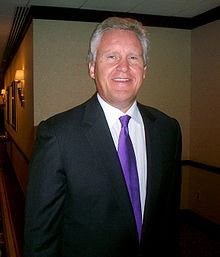General Electric Moving Away from Nuclear Energy
I write often on the folly of nuclear energy. If it were cheap, I guess we could have a conversation about how we could deal with the safety issues. But it isn’t; it’s fantastically expensive.
Apparently General Electric CEO Jeffrey Immelt sees this similarly; here’s an article on what he said yesterday on the subject, including the already famous quote: “It’s hard to justify nuclear. Really hard.”


All these anti-nuclear articles and statements assume that there are no better nuclear technologies available which could eliminate the usual objections to nuclear power. In particular, none, so far as I am aware, have indicated that they have ever even heard of the liquid fluoride thorium reactor (LFTR), which uses thorium tetrafluoride as fuel. From successful experience with a prototype, it appears that it would be much more economical, safer, and solve the problem of nuclear waste. Because it can operate at a higher temperature, it could use the Brayton cycle instead of the Rankine cycle and completely eliminate the need for water cooling.
Whether or not the LFTR could totally solve all the problems associated with nuclear power has yet to be determined, but it certainly looks promising. In any case, objections to using nuclear power cannot be taken seriously unless those objecting indicate that they have thoroughly studied and understand nuclear technologies other than the ones now in common use.
I recently saw a study by what I interpreted to be an objective source that showed nuclear to be the most cost effective source of energy generation when one took the total energy production by a plant and divided that figure into the total cost to obtain a cents/kW cost. Of course, most of the cost of nuclear is up front, so it requires a ton of money ~7-10 B$ to get a nuclear plant started. Its advantages are no carbon dioxide emission, very low operating cost and very long life. I believe that GE made the boiling water reactor (BWR) and has not sold one of these in many, many years. So I take GE’s decision to mean that they think that there is no market for BWRs.
Another point worthy of consideration is that the current favoring of natural gas over nuclear power is due to its very low cost; however, if NG becomes an important fuel for transportation through either CNG or conversion to methanol, one can expect the cost of NG to increase.
The boiling water reactor is generally less expensive than the pressurized water reactor because the BWR does not use a steam generator. Rather, the water boils in the reactor vessel and the steam therefrom is used directly by the steam turbines. However, it is probably less safe than the PWR and, because the steam provided to the turbines is slightly radioactive, it causes the turbines to become slightly radioactive. That may be the reason that BWRs have fallen out of favor.
When the externalities of burning coal are taken into consideration, then nuclear power does seem much less expensive than coal power. The health risks of burning coal are also far higher than the health risks of nuclear power, even though, in my opinion, we have implemented a bad nuclear technology.
The current abundance of natural gas is largely the result of hydraulic fracking which has made it possible to extract considerably more gas. However, there are environmental questions about that method of extracting gas. I’m not convinced that we know all that we should know about the environmental risks and have strong reservations about hydraulic fracking. Although CO2 emissions from burning natural gas are less than CO2 emissions from burning other fossil fuels, we should aim to reduce CO2 emissions far below what they are when natural gas is burned.